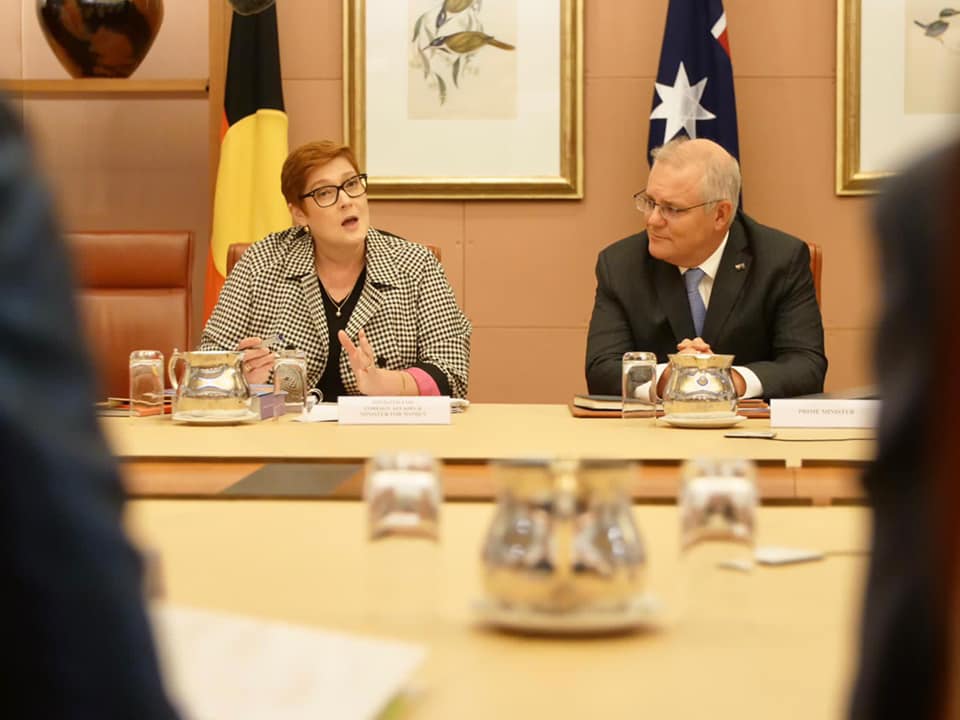Last week’s National Summit on Women’s Safety has been rightly critiqued as hypocritical and meaningless in the fight for women and non-binary persons to be safe and equal.
While federal Senate has acknowledged that there is an ‘epidemic of violence against women’ – a serious threat to women’s wellbeing that requires deep listening to advocates and survivors and significant law reform — the final Statement from the Delegates of the Summit (a statement that excluded the voices of many survivors) offered few concrete options for change, and largely ignored the challenges to women’s safety and equality.
Indeed, the stumbles of the Women’s Safety Summit are especially worrying considering the future hurdles women and non-binary persons face in fighting for their safety and equality.
One such hurdle is post-Covid economic equality.
Another is the impact of climate change on our health and prosperity.
Climate change is often labelled a ‘threat multiplier’ in national security circles, worsening human conflicts, food and energy insecurity, and natural disasters.
But climate change also “multiplies” the threats facing women and non-binary persons.
It is likely the first thing that comes to your mind when thinking about gender and climate change, centres on natural disasters. Perhaps it is the image of a woman fleeing bushfires, a mother sheltering her children on a boat under a red ash sky, or a young person losing their home to a flood. Natural disasters, like bushfires and flooding, are predicted to increase in frequency and severity over the next decade. These disasters cost us lives, homes, and billions of dollars. Women and non-binary persons are disproportionately impacted by natural disasters. We are more vulnerable to the economic shock of a disaster, and more likely to be impacted by gendered violence in the aftermath of a disaster.
‘Post-disaster poverty creep’
The long-term impact of natural disasters on women and non-binary persons are so marked, that the Economic Security4Women and the National Rural Women’s Coalition coined the term ‘post-disaster poverty creep’ to describe the increased financial vulnerability of women after disasters. The impacts include interruptions to paid work and the sustainability of small businesses. There are also the massive costs of rebuilding homes and lives, the increased caring duties for their families and poorer mental health outcomes. Long after the smoke clears from a fire, the shadow of poverty stalks us.
Meanwhile, climate impacts also extend to the health of women and non-binary people. A second image that may come to mind, is that of a pregnant person – trying to give birth in a smoky delivery room, afraid their child’s first breath will be choking. Climate change has a serious impact on every Australian’s health, both from the physical dangers of disasters and the impacts of increased food and water insecurity. But climate change has acute impacts for women and non-binary persons. Women were over-represented in emergency departments for smoke inhalation and asthma, and pregnant people were also at a higher risk of pre-mature birth and birthing complications due to long-term smoke exposure during the 2019-2020 Bushfires.
We must also remember that the impacts of climate change are not limited to the direct impact of natural disasters. A final image, one that was showcased at the Women’s Safety Summit, is of a woman facing domestic violence. The research is clear. Domestic violence spikes after disasters. Domestic violence also increases on extremely hot weather days. In fact, domestic violence rates rise with economic hardship. In 2050, our communities will be hit by severe natural disasters regularly, and between such events extreme hot weather days will be more common. By 2050, Sydney will swelter through 67 more days of high heat. Alice Springs, and other inland communities, will face 245 days or more of high heat.
We will face more extreme weather, the economic repercussions of such disasters, and the violence that follows.
If the Women’s Safety Summit seems useless in the face of the current domestic violence epidemic, how can we possibly prepare for the coming challenges?
This government has failed us in the present. But the complete omission of climate change in gender equality policy is setting us up to fail in the future.



